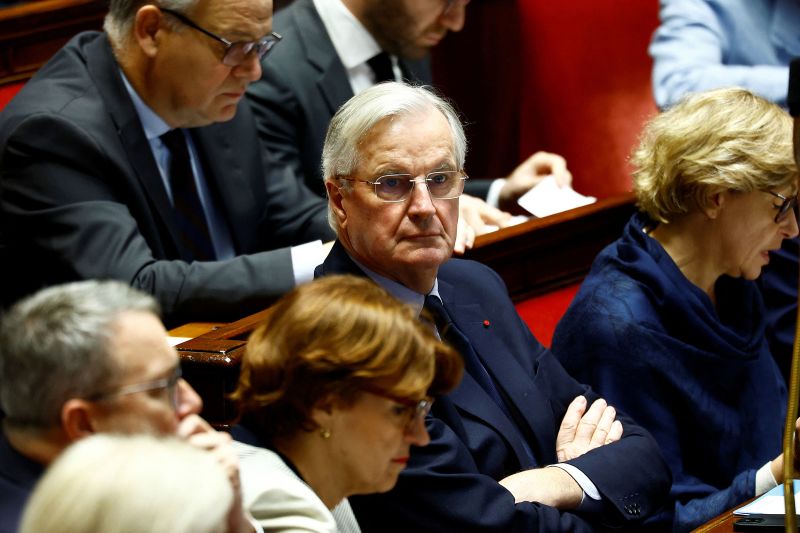
French prime minister ousted in no-confidence vote, throwing country into deep uncertainty
French Prime Minister Michel Barnier has been ousted in a no-confidence vote just three months into his term, after lawmakers on the left and the right united to plunge the country into deeper political instability.
A total of 331 out of 577 lawmakers voted against Barnier’s fragile government, seizing their opportunity to topple the veteran centrist after his attempt to ram through part of his government’s annual budget on Monday.
His is the first French government to be defeated in a no-confidence motion since 1962, and Barnier is now set to become France’s shortest-serving prime minister in history.
Barnier’s cabinet is now expected to serve in a caretaker capacity until French President Emmanuel Macron names new leadership.
But that will prove a delicate task, with the increasingly vulnerable president forced to appease lawmakers on both extremes of French politics.
Macron had appointed Barnier to lead a minority government after a snap election, called by the president in the summer, split France’s parliament into three factions, each well short of a majority.
The situation had immediately appeared untenable, and it collapsed at the first major hurdle on Monday, when Barnier was forced to use a risky constitutional mechanism that bypassed a vote in the legislature on his 2025 budget.
That allowed rival lawmakers on the left, who had long vowed to bring him down, to call a confidence motion in response, and the far-right National Rally supported the motion to see it through on Wednesday.
Pleading his case during Wednesday’s debate in the National Assembly, Barnier told lawmakers he was “not afraid,” but warned that removing him would make “everything more difficult.”
But he was forced to watch as lawmaker after lawmaker called for his ouster.
Marine Le Pen, the leader of the far-right National Rally, said during the debate that Barnier’s “stubborn adherence to dogma and doctrine prevented him from making the slightest concession, which would have avoided this outcome.”
The far-right leader has been the chief antagonist throughout the Macron era, challenging him in two presidential elections and now dispatching the prime minister he handpicked to settle a simmering crisis.
“It’s for his conscience to tell him if he can sacrifice public welfare and France’s future to his ego,” Le Pen said of Macron during the debate, as she sought to quickly turn scrutiny toward the president.
